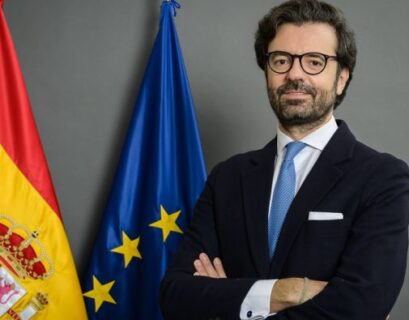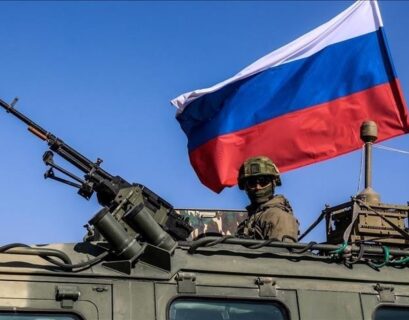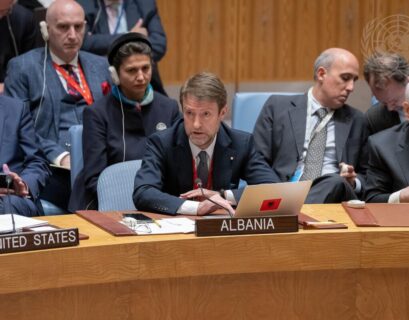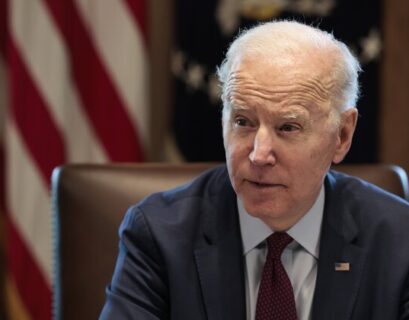NAIM RASHITI
On 25 March 2020, Kosovo parliament dismissed the government of Albin Kurti, less than two months after it was formed[1]. Vetëvendosje Movement and LDK failed to implement the results of October 2019 which brought a significant shift of power and hope to a large portion of the population. Change of the government from one of warriors-led to that of Vetëvendosje, to many voters, meant change of government business, fight against corruption and nepotism, improvement of accountability of public officials and more prosperity. International community had also welcomed the formation of an LVV-led government which marked a major policy shift compared to a few years back.
The LVV-LDK government was formed on 03 February. The U.S. and EU were quick to remind the elected Prime Minister, Albin Kurti on their demands, removal of the 100 per cent tariffs on the Serbian goods and active participation in the bilateral dialogue. Kurti had long promised not to prioritise the dialogue with Serbia and that he will gradually replace the tariffs with full reciprocity.
The government began optimistically, but the relations between the coalition partners cracked down soon. They had started from a very low point of trust and had left many issues opened, to be addressed at a later stage. For the first time in the government, LVV members of the cabinet began over-controlling the institutions, including those run by LDK. In numerous cases VV government officials bypassed their LDK colleagues and avoided consultations processes. LDK did not like this and was unwilling to accept Kurti’s grip.
More critically, while negotiating the coalition, they failed to develop a common position on numerous sensitive issues, which turned to determine the fate of the government. Not surprising, their differences were large. A key one was on how the government will handle the dialogue with Serbia and the elements accompanying this difficult agenda. In a matter of weeks this became an unbearable challenge.
Both the U.S. and EU (and member states) had reminded the election winning parties of their demands, removal of tariff and full participation in the dialogue. Yet there was some significant difference on their approach.
The U.S. had made clear that its administration wanted tariffs suspended as soon as the government took office. At some point when their special envoy, Richard Grenell became impatient with the lengthy talks between LVV and LDK, he reached out to all party leaders and sought their support for the process of the dialogue. Americans decided not to wait for the government formation and eagerly brokered an accord between Kosovo and Serbia on a flight connection between Belgrade and Prishtina on 20 January 2020. Another agreement, facilitated by Ambassador Grenell, on railways and the highway connection was reached on 14 February in Munich, just 10 days after Prime Minister Albin Kurti took office.
U.S. considered that the LVV-LDK government had enough legitimacy and popularity to make the necessary decisions to reach a comprehensive deal with Serbia during 2020. It soon became clear that Kurti’s plans did not match with this agenda, despite increased U.S. pressure on coalition partners and other institutions. Kurti felt “the train was already moving” and he was not in charge of it, thus he decided not to go along with it. LDK leader, Isa Mustafa repeatedly pressed on Kurti to remove the tariffs and align the government position with that of Washington. Whispers began to come from U.S. for sanctions against Kosovo. Worryingly, important officials called for the withdrawal of the U.S. troops from Kosovo and the Millennium Cooperate Challenge (MCC) announced the suspension of USD 49 Million program.
Kosovo has rarely confronted the U.S. Administration or either any in the international community. In late 2017, U.S. angerly opposed attempts of the parliament to revoke legislation on the Specialist Chambers and SPO. The move orchestrated by the war-time leaders was initiated by one-third members of the parliament. Europeans also took a firm stance against the move; Germany and France had deployed their envoys and threatened to sanction these leaders. The pressure made the assembly to step back. Apparently, Kosovo leaders brought the issue back again recently which made the U.S. State Secretary Mike Pompeo to warn of possible repercussions for Kosovo in a letter he sent to President Hashim Thaçi. The Specialist Chambers were established in 2016 with a mandate to try alleged crimes committed by the former KLA members. The chambers operate under Kosovo law but are located in Hague.
This time, reactions coming from Washington D.C were much stronger and harmfully exposed Kosovo’s inability to work with its key allies. This unprecedented development provoked serious domestic debates about the Kosovo commitment to the alliance with the United States. In an unconventional move, Prime Minister Albin Kurti blamed Ambassador Richard Grenell for the fall of his government.
Kurti opposed to lifting of the tariffs for two reasons; he did not want to engage in the dialogue modelled by the current U.S. administration and more importantly, for domestic reasons, he refused to participate in the process together with President Hashim Thaçi. In other words, he would have fully removed the tariffs and participated in the dialogue only if the international community was to choose him over any other local Kosovo actor and that process of the dialogue would adapt to his views. In practice this meant that Prime Minister Albin Kurti to be in charge of the dialogue and sit face to face with President of Serbia Alexandar Vučić
Comparatively the EU was less pressuring on the new government whom they sympathetically welcomed. Their position is much more complex. While U.S. mediating agreements between two capitals, the EU was still in the process of establishing their institutions and appointing staff after the change of the Commission. Secondly the newly appointed EEAS chief Joseph Borell was selecting a special envoy for the Kosovo Serbia talks. The EU failure to deliver the free visa regime had left it with little leverage over Kosovo authorities. Serbian national elections scheduled for April 2020 had made EU to be more realistic on the prospect that talks between Prishtina and Belgrade will not restart before June. In the meantime, the world-wide crisis with COVID-19 had put all other agendas on hold.
While the EU was planning to restart talks by June, the U.S. aimed at reaching an agreement between Kosovo and Serbia by October 2020. Last few months, Kosovo countered a wave of different and somehow contradictory messaging and approaches from the U.S. and EU member states against which domestic political elites reacted prematurely. The truth is neither elites nor the society wants to be brought to a situation where they have to choose one over the other between the U.S. and EU. Leaders’ reactions simply present ‘a Kosovo fear of having to favour one and if so than they have to choose America”. U.S. “threats” were received with high concern in Kosovo. For the LDK, the decision to initiate a vote of no-confidence on the government became inevitable. Prime Minister Kurti may have not planned on it, but ultimately, he chose to go into a collision course with the Trump Administration.
Tensions between two transatlantic powers over “numerous other agendas” have also had an impact in Kosovo, both domestically and on the dialogue with Serbia. During the Mohgerini-led dialogue Germany opposed the U.S. supported plan to conclude an agreement between two centuries long enemies, Kosovo and Serbia, which presumably was more flexible to include border modifications. Under Joseph Borrell, no new efforts from either side have been made to reconcile positions. The U.S. has continued with their schedule and the EU has been busy with their internal coordination and planning, including here the controversial selection of special envoy, Miroslav Lajčák”.
Their divisions became even more apparent on Kosovo’s domestic affairs. In an unprecedented move, Germany and France sent a démarche to the LDK against their initiative for a vote of no-confidence against the government of Albin Kurti. This action provoked the U.S. to react in support of the parliamentary procedure in support of vote of no-confidence on the government. Given Kosovo’s incomplete statehood, many locals fear it could become a proxy for the complex relations between EU and U.S, a generally negative development for the country itself.
Looking deeper, the EU and U.S. have a common goal, both want to see Prishtina and Belgrade reach a comprehensive and long-lasting peace agreement. The differences occur on the content of a potential accord and about the dynamics of the process. The U.S. and only a few EU member states encourage an arrangement that involves mutual recognition between Kosovo and Serbia. EU institutions and other member states may search for a “working” normalisation agreement that could still leave Serbia’s recognition of Kosovo aside. This difference cannot prevent the EU and U.S. and their envoys to coordinate their efforts and they will certainly do so once the talks resume. Yet, the real obstacles are the actors of the dialogue, Serbia and Kosovo are simply not ready for a compromise, that both, Brussels and Washington seek from them.
What next?
The care-taker government has successfully administered the pandemic COVID-19. Citizens support at large the government instructions though many of their decisions are legally and constitutionally ambiguous.
Yet the outgoing government cannot stay in office for much longer. As the winner of elections, LVV leader Albin Kurti has refused to put forward a candidate to form a new government. Kurti insists on new elections to be held as soon as the country goes back to normality. All parliamentary parties but Vetëvendosje, refuse new elections and insist on forming a new ruling majority. After weeks of exchanges between the president Thaçi and Albin Kurti, the former mandated an LDK nominee, Avdullah Hoti, to form a new government. Hoti soon agreed with AAK, NISMA and minorities and collected 61 out of 120 signatures for an assembly session to vote his government. LVV was quick to put a complaint to the Constitutional Court; the later suspended the Presidents’ degree. The assembly cannot vote on a new government until the court rules, likely before the end of May.
The court intervention was necessary, now or later, and key to alleviate the contradicting positions between LVV and others. In case the court ruling favours LVV stance, elections will be inevitable, to be held no later than July; and Albin Kurti is expected to win. Should the presidents’ decree prove legal, the parliament will vote an LDK-led government rather soon.
Neither option will resolve Kosovo’s pressing problems. LVV would need new partners to govern if elections are held this summer. An LDK government will have its own challenges, internally and in relation with a strong opposition of LVV and PDK. It already enjoys a low public trust and will find it difficult to demonstrate a change from early governments of 2015-2019. Ruling partners will disagree among themselves about the dialogue with Serbia and tensions with the President will rise again. It is destined to be yet again a provisional government. In spring 2021, the country needs to elect a new president; as proven by experience, the process will most likely provoke a new crisis. In between, Albin Kurti and his Vetëvendosje movement, counting at large on angry citizens disgusted with the establishment, will go back to their old habits, street protests, as soon as the talks with Serbia resume. Kurti will likely come back, this time the hope is that he will mature, appreciate institutions, build alliances and uphold Kosovo’s commitments to its allies.
No government has been able to improve Kosovo’s outlook. The country’s limited and obscure political class finds difficult to resolve its demanding agenda. While improving its domestic development requires urgent action, Kosovo should seek to conclude the conflict with Serbia and aims to become a full member of the International Community with no delay. The unresolved conflict with Serbia continues to backpedal the country, domestically and internationally.
NAIM RASHITI is Executive Director and Senior Policy Analyst for Western Balkans and EU in the Balkans Policy Research Group
[1] For more details on Kosovo developments you can read the latest BPRG publication: “Kosovo 2020: A Complex Agenda for the New Government”









